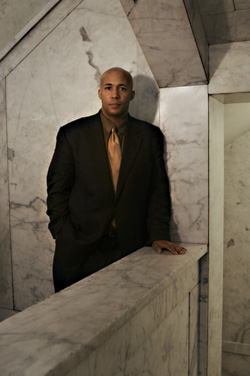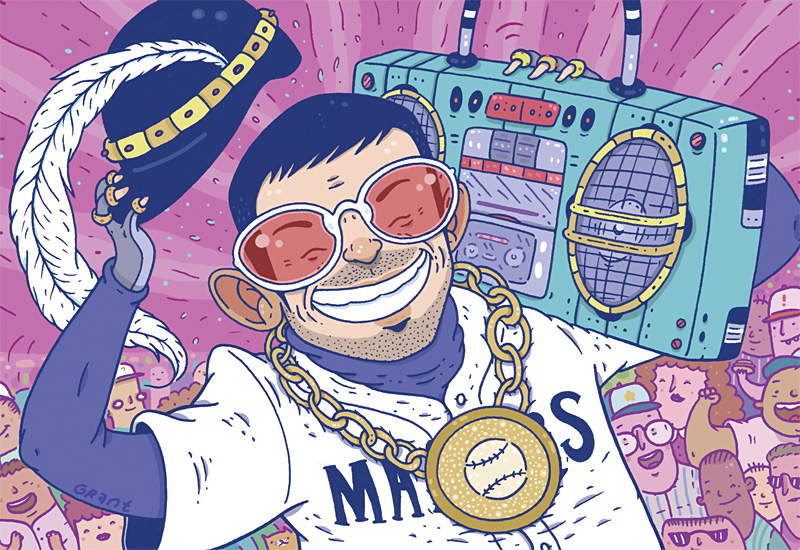Elected officials are known for their inflated decorum, constantly referring to colleagues as “honorable” and thanking one another profusely for the smallest courtesies. Yet even by these standards, the congratulatory air of last Wednesday’s Senate Judiciary Committee discussion of House Bill 2712 was impressive.
Sen. Adam Kline, D–Seattle, co-sponsor of 2712’s Senate companion bill, and Rep. Charles Ross, R-Naches, co-sponsor of 2712, took turns thanking the legislation’s other contributors, each asserting that he was “speaking from the heart.” They praised the bill’s collaborative origins, civil liberties protections, and holistic nature, emphasizing its commitment to social programs. Speaking of the communities whose struggles with gang activity drove the legislation’s creation, Ross said: “I truly believe that this bill will deliver to them not only help but also hope.”
The legislation’s opponents—among them the Seattle/King County NAACP and King County council member Larry Gossett—see a different picture: a bill heavy on punitive provisions, light on social programs, and ripe for abuse, particularly in the form of racial profiling. They find themselves butting heads with Kline, usually an ally, while the ACLU, which generally opposes such legislation, watches from the sidelines.
House Bill 2712 was the product of a task force created after previous attempts at anti-gang legislation failed. It sailed through the House, passing by a 94-1 margin, and appears headed for similar success in the Senate, where it passed the Judiciary Committee on Friday and Ways and Means on Monday. The bill is intended to be a multipronged tool to reduce the gang activity and violence that many smaller municipalities—particularly in the Yakima Valley—describe as increasingly problematic. It calls for social programs and a law-enforcement database to track suspected gang members, and would also enable prosecutors and city attorneys to issue civil injunctions against gang members, which could prohibit them from associating with one another.
At Wednesday’s hearing, James McMahon, president of the Washington Association of Sheriffs and Police Chiefs, said that the bill is “easy to take potshots at…without the burden of having to read it.” But readings vary: The bill’s critics question its constitutionality and potential for abuse, with Seattle/King County NAACP President James Bible wondering whether it could have been used to effectively outlaw the Black Panther Party, and calling it “a constitutional violation in the making.”
Beyond the constitutional issues, the debate over 2712 is noteworthy for the unexpected alliances it has produced. Kline is a personal injury and civil rights attorney who has worked on pro bono cases for the ACLU, most notably winning a First Amendment case in the Washington Supreme Court regarding a Tacoma ordinance prohibiting political yard signs. A South Seattle liberal who has vocally opposed three-strikes laws and harsher sentencing statutes in the past, he now finds himself allied with Republicans and against the NAACP on 2712. Meanwhile, despite playing an informal advisory role during the bill’s drafting, the ACLU remains officially neutral, a curious position given the potentially high civil-liberties stakes. Both Kline and the ACLU have voiced concern about the constitutionality of previous anti-gang laws—for example, a Sunnyside ordinance that allowed police officers to identify individuals as gang members based on appearance and provided penalties for parents whose children belonged to gangs. But Kline notes that 2712 has a narrower definition of gang activity and provides more due process to the accused, asserting that “constitutionality is a floor to us, not a ceiling.”
He points out that 2712 guarantees legal representation to alleged gang members who are the subject of injunctions, an unusual protection that is not constitutionally required in civil cases. The bill also limits injunctions to individuals who have previously been convicted of gang-related offenses, and mandates that cities looking to issue such orders show that they’ve made intervention services available to gang members and that the gang’s activity has led to an “intimidated or terrorized” community. Finally, cities looking to prove that someone has violated an injunction must do so through a full criminal trial.
“We’ve purposely made it difficult and expensive,” says Kline. “This is not something that will be used casually.”
As for the database, he argues that the statute simply codifies the existing practice of officers recording observations in their notes. Moreover, he points out that 2712 restricts what can be entered (an officer must have at least reasonable suspicion of criminal activity to make an entry), how the information can be used (not as evidence in a criminal proceeding or as the sole basis for a stop), and who can see it (not the public, and “only a few supervisors or high level officials in each department”).
The bill’s opponents remain unconvinced, with Bible noting that the statute says only that “access to the database shall be determined by,” rather than limited to, the chief executive officer of each participating agency, meaning that law enforcement will determine its own restrictions. (Kline later confirmed Bible’s interpretation, clarifying his previous statements as meaning that limiting access to databases is standard practice in law enforcement, and that he expects the same will hold true with 2712.) Here, Bible worries that access will be widespread and the information used in a way that “conflict[s] with the ideals written into the proposed legislation.” Young people, particularly racial minorities, he says, may find themselves on the list because they “don’t pass police officers’ attitude test.”
Bible fears that as a result, they’ll be harassed and end up facing trumped-up or inflated charges, whereby the adolescent shenanigans for which most kids receive groundings become for them a criminal record identifying them as gang members. Among the crimes the statute says can help establish a “pattern of criminal street gang activity” is third-degree malicious mischief, which was likely included to apply to gang graffiti, but which Bible notes can apply to something as small as deliberately stomping on a flower bed or scribbling a profanity on a stop sign.
The civil injunctions present a more immediate constitutional issue: whether the government, regardless of the procedural protections it provides, can prevent gang members from associating with one another for lawful purposes. “If someone has been convicted of gang-related activities, the government has more ability to restrict these individuals’ freedom of association,” writes Erwin Chemerinsky, a constitutional law professor at Duke University Law School. “But it certainly cannot restrict others’ ability to associate with them. I think there is still a strong argument that [2712] is too broad. I think that the law could provide for an injunction to keep them from associating for gang-related activity, but not for other purposes.”
Bible takes the critique further, arguing that “it’s a short step towards defining political activity as subversive. Under our Constitution, being a member of an organization is not illegal. Criminal activity is illegal.”
Finally, 2712’s critics fault the bill’s distribution of social and law-enforcement programs, noting that the original $10 million earmark for social programs has been removed, while $3 million for law-enforcement programs remains intact.
The ACLU shares the concerns of 2712’s opponents, and in fact challenged a similar statute in California, ultimately losing its argument in that state’s Supreme Court. Local ACLU spokesperson Doug Honig says that the organization generally opposes databases “because they can be used to harass individuals who are not involved in criminal activity but have been involved with a gang in the past, [or] who have simply associated with someone involved in a gang or alleged to be involved in a gang.”
“The emphasis has to be on employment, education, and prevention programs that address why people join and stay in gangs involved in criminal activities,” he adds, “and on focusing law enforcement efforts per se on dealing with the commission of crimes.”
As for the injunctions, Honig says: “A provision that bars associating with other gang members certainly can interfere with First Amendment rights, and the ACLU does not support such provisions.” He adds that injunctions “can be applied in a discriminatory manner against members of certain groups; that’s ethnic profiling.” Should the bill pass, he says, the ACLU will be monitoring its application for unconstitutional practices.
Nevertheless, the bill’s proponents regularly credit the ACLU for the bill’s civil liberty protections, and point to the organization’s neutrality as evidence that those provisions are sufficient. “Having the ACLU folks working with us on the task force was wise,” said Rep. Ross at Wednesday’s hearing. “Trying to make this bill designed to go after criminal behavior and nothing else—I think that their voice helped us go that route.” Similarly, Kline noted his pride that the bill’s authors “took [the ACLU] seriously, to the point where they’re no longer against this bill.”
The ACLU’s neutrality rubs some of its allies the wrong way. “There’s good cop and there’s bad cop,” says one ACLU member who wished to remain anonymous because of professional contact with the organization. “Sometimes it feels like the ACLU is playing good cop all the time. Its members and other organizations rely on them to play bad cop on these issues. That’s why I pay them my dues every year.”







